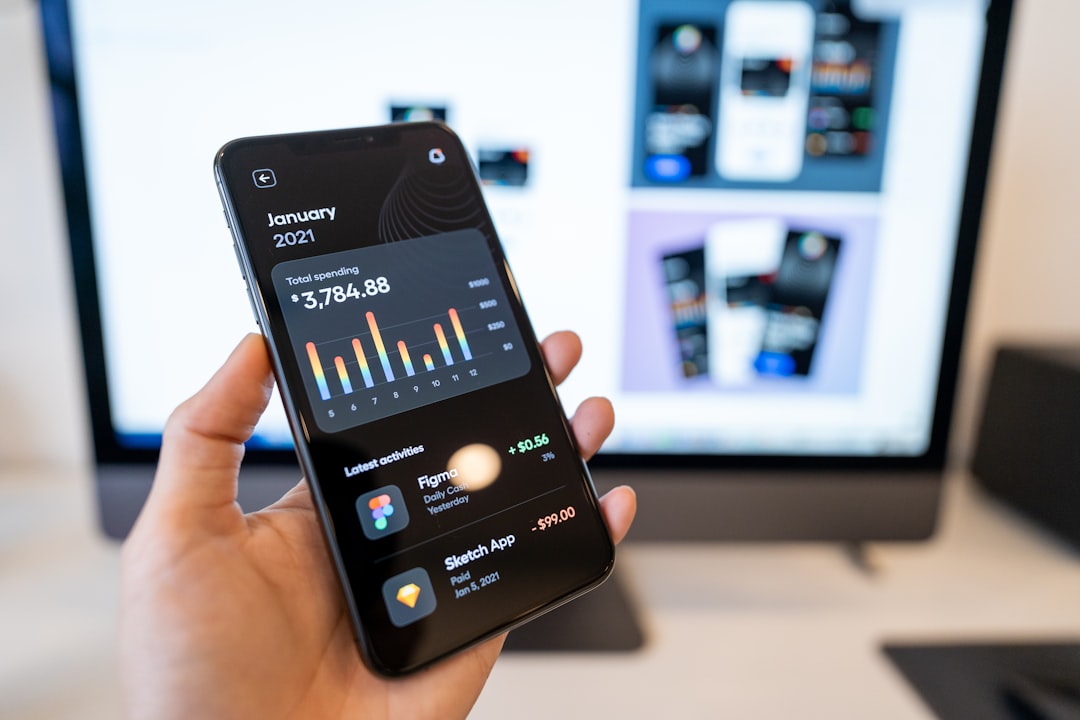Mobile Application Developers: Adapting to Emerging Technologies
 The Role of Emerging Technologies in Supporting Mobile Application Developers
The Role of Emerging Technologies in Supporting Mobile Application Developers
Emerging technologies, notably Artificial Intelligence (AI), are pivotal in transforming mobile app development. They significantly contribute to the industry’s evolution and set its future direction. Importantly, these technologies are not just trends; they’re crucial tools for mobile application developers. They help future-proof skills and maintain relevance in a fast-changing industry.
For example, AI and machine learning add personalization to the development process. They enable the creation of more intuitive, user-centric applications. This helps overcome previous challenges like complex algorithm writing, manual development, and compatibility issues. These technologies are clearly vital in shaping mobile app development’s future.
Additionally, the growing use of AR/VR, blockchain, and IoT is reshaping the development spectrum. These technologies are increasingly integrated, leading to more innovative, user-friendly applications. With rapid technological advancement, understanding and leveraging these technologies is becoming essential for developers.
Staying Up-to-Date with Trends
The mobile app industry is marked by continual change and evolution. This makes it essential for developers to stay updated with emerging technologies and trends. Anticipating the future and staying at the technological forefront is key to success in this field. The need for adaptability, continuous learning, and a focus on trends is crucial for professionals.
As the industry grows, developers face the challenge of constantly updating their skills and knowledge. They need to keep pace with the latest trends and technologies. The current landscape of mobile app development is promising, with a projected CAGR of 13.8% from 2023 to 2030. This growth highlights the importance of staying informed about industry trends and adapting to new technologies.
No-Code and Low-Code Development
No-code and low-code development platforms are revolutionizing mobile app development. They provide an accessible, cost-effective approach to app creation. This results in quicker turnaround times and high-quality outputs. Tools like IMAGINaiTION are key in making app development accessible to more people, thus spurring creativity and innovation.
These platforms are democratizing app development, enabling rapid prototyping and testing. This trend benefits small businesses and start-ups. They can develop apps without the traditionally high costs. Importantly, the skill to quickly build and test apps using these platforms is becoming crucial in the mobile app development industry.
The Revolution of AI and Machine Learning in Mobile App Development
AI and machine learning are transforming mobile app development. They enable more personalized, user-centric experiences. These technologies streamline the development process, helping developers tackle previously challenging issues. Integrating AI and machine learning is a key trend in the industry’s future.
For example, AI-powered chatbots are now common in many apps. They enhance user experiences by providing instant, automated responses. Meanwhile, machine learning algorithms analyze user behavior and preferences. This analysis enables more personalized app experiences. As these technologies evolve, their impact on mobile app development will grow. This makes them essential skills for mobile application developers.
 AR and VR in Mobile App Development
AR and VR in Mobile App Development
The integration of Augmented Reality (AR) and Virtual Reality (VR) in mobile app development is fostering creativity and innovation. These technologies offer unique opportunities, especially in gaming, retail, and education. They create immersive, interactive user experiences, revolutionizing mobile app interactions.
For instance, AR in retail apps allows for virtual fitting rooms. Customers can “try on” clothes or accessories virtually before buying. In contrast, VR in education apps offers immersive learning experiences. Students can explore different environments or historical events engagingly. As AR and VR technologies advance, their integration in mobile apps will likely increase. This makes AR and VR expertise crucial for future-proofing in the mobile app development industry.
IoT Integration in Mobile Apps
IoT integration in mobile apps is broadening their potential uses and functionalities. This connectivity enables apps to interact with various smart devices, such as home appliances and wearable technology. Consequently, it offers users more convenience and control over their devices.
For instance, smart home apps can manage household appliances. They can turn on lights or adjust thermostats, all from a smartphone. Similarly, health and fitness apps can connect with wearable devices. They track and analyze user activity, offering personalized fitness insights and recommendations. As IoT technology evolves, developers skilled in IoT integration in mobile apps will be well-prepared for the industry’s future.
5G Technology and Mobile App Development
5G technology is transforming mobile app development. It offers faster speeds, enhanced capacity, and lower latency compared to earlier mobile networks. The arrival of 5G is spurring advancements in app functionality and user experience. This enables developers to create more complex, resource-intensive applications.
For example, 5G allows streaming of high-quality, 4K video content without buffering. This feature was unfeasible with previous network generations. Additionally, it enables real-time multiplayer gaming on mobile devices. This provides a smoother, more responsive gaming experience. As 5G becomes more widespread, developers who harness its capabilities will lead the industry.
 The Importance of Security and Privacy in Mobile Apps
The Importance of Security and Privacy in Mobile Apps
In an era marked by data breaches and privacy scandals, enhanced security and privacy measures are crucial. They protect user data, an increasingly important trend for iOS app development in 2023. Developers who can implement robust security measures, like data encryption and two-factor authentication, are key. They build user trust and ensure app success.
For instance, integrating biometric authentication methods in mobile apps is gaining popularity. Methods like fingerprint scans and facial recognition offer higher security levels for users. Moreover, mobile application developers need to ensure app compliance with privacy regulations. This includes regulations like the General Data Protection Regulation (GDPR) in the European Union. Understanding and implementing these security measures is essential. It’s a vital skill for future-proofing in the mobile app development industry.
 Skills Needed to Future-Proof as Mobile Application Developers
Skills Needed to Future-Proof as Mobile Application Developers
The mobile app development industry is rapidly evolving. Developers need a diverse skill set, including technical proficiency, UX design, front-end and back-end development, problem-solving, mobile platform knowledge, continuous learning, communication, and project management. These skills are key for creating successful, user-friendly apps. They align with the growth and value projected in the mobile app industry.
Technical proficiency involves knowing various programming languages, development frameworks, IDEs, and version control systems. UX design skills are crucial for intuitive interfaces and appealing layouts. These enhance user engagement and satisfaction.
Problem-solving and debugging skills are essential too. They help identify and fix bugs efficiently, optimize app performance, and ensure a smooth user experience. Continuous learning and adaptability keep developers updated with new technologies and trends. Communication and project management skills are vital for team collaboration and delivering high-quality apps on time.
Embracing the Future for Mobile Application Developers
Looking to the future, mobile app developers must embrace 2023’s top trends. These include no-code and low-code development, AI and machine learning, AR & VR, IoT, 5G technology, and enhanced security. It’s vital for developers to stay updated with these trends. This enhances their diverse skill set, key for future-proofing in the industry.
Developers should closely monitor the industry’s evolving landscape. It’s important to continuously enhance skills and knowledge to remain relevant. The mobile app industry is dynamic and full of promise. It offers many opportunities for adaptable, growth-oriented developers. By adopting new technologies and keeping up with trends, developers can future-proof their skills. They also contribute to the evolution of the mobile app development industry.






